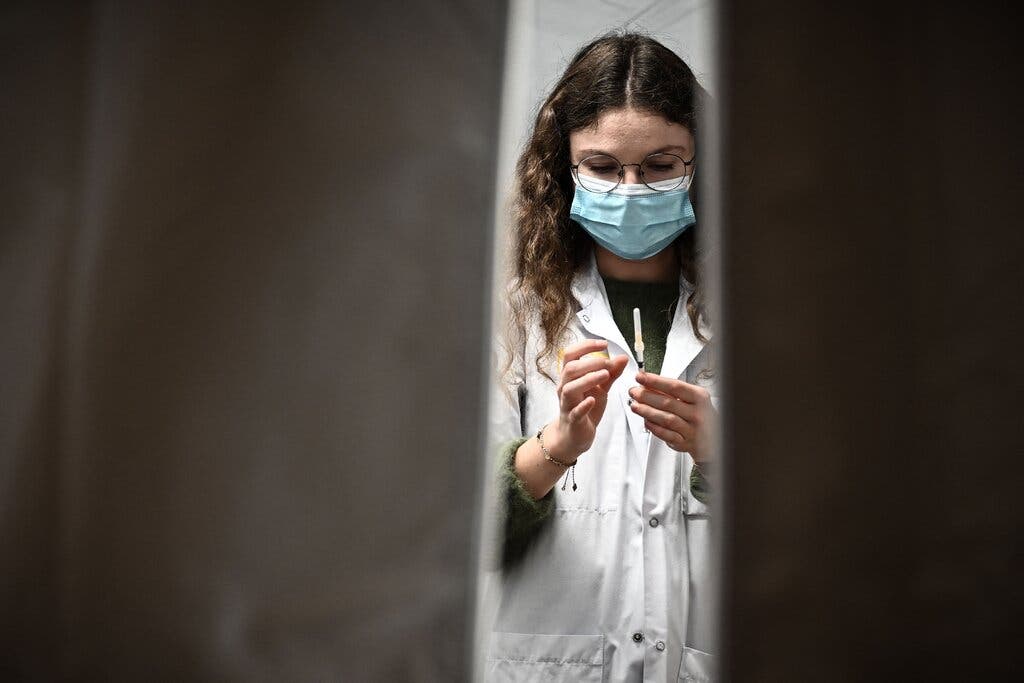A rush of recent laboratory experiments suggests that vaccinations, particularly booster injections, may provide protection against the worst consequences of the fast-spreading Omicron coronavirus type, according to the National Institutes of Health. According to the findings of the study, the highly modified virus will still cause numerous breakthrough infections in persons who have been vaccinated or who have been infected with previous forms of the virus.
Scientists presented findings from numerous trials at a World Health Organization summit on Wednesday, revealing that T cells in patients who have been vaccinated may mount a significant resistance against the variation, potentially preventing severe sickness, hospitalisation, and death.
Another piece of information released on Wednesday came from Dr. Anthony S. Fauci, President Biden’s top medical advisor for the coronavirus response, who presented early findings from his institute’s research of the Moderna vaccine. In the laboratory, two doses created a minimal antibody response against Omicron, but after a third shot, the protection increased dramatically, according to the researcher.
Other researchers at the World Health Organization conference reported data that were comparable to theirs, demonstrating that booster doses of either the Moderna or Pfizer-BioNTech mRNA vaccines restored antibodies to levels considered to be sufficient to provide substantial protection against infection.
Despite the fact that the study is based on early observations of cells in the laboratory, it is a nice respite from the deluge of alarming new information about Omicron that has just emerged. The ability of Omicron to elude antibodies, which are part of the body’s initial line of defence, has become more obvious over the last week, which may explain why infections with the variation have risen in many nations. However, antibodies are not the only participants in a person’s immune response to a virus; other factors are also crucial. T cells play an important function in the body.
A higher incidence of omicron infections has been seen in two categories of patients who contain antibodies against the coronavirus: those who have received vaccinations and those who have not been immunised but have recovered from an earlier infection with the coronavirus.
Two doses of the Pfizer vaccine were just 33 percent effective against an Omicron infection, according to research published this week by experts in South Africa. This compares to an effective rate of roughly 80 percent during what Dr. Fauci refers to as “the pre-Omicron period.” According to the findings of the trial, two doses of the Pfizer vaccine provided 70 percent protection against severe hospitalisation and mortality, down from about 95 percent protection before to the discovery of Omicron.
Scientists from across the world reported comparable laboratory results at the World Health Organization summit on Wednesday, revealing that vaccine-induced antibodies functioned much worse against Omicron than against other strains.
Boosters, on the other hand, seem to offer enough additional antibodies to reduce the severity of these diseases. During his presentation, Dr. Fauci discussed tests conducted at the National Institutes of Health in which scientists collected blood serum from persons who had received two doses of the Moderna vaccination as well as from those who had received a third dosage of the vaccine. The serum was then combined with viruses that had been designed to carry Omicron’s surface proteins, according to the researchers.
Dr. Fauci’s warning comes at a time when officials in the Biden administration are ready for a possible surge of Omicron infections that may devastate the health-care delivery system. In a recent warning, the Centers for Disease Control and Prevention stated that the percentage of coronavirus cases in the United States caused by the Omicron variant had increased significantly, and that this could portend a significant increase in infection rates beginning as early as the next month. The Delta variety is still by far the most often used in the United States today.
Foreseeing a wave of vaccinations, the government is attempting to push all eligible Americans — those 16 and older who had their second vaccine dosage at least six months ago — to obtain their booster doses. According to the Centers for Disease Control and Prevention, around 27 percent of fully vaccinated Americans have additionally received booster doses.
Many scientists believe that T cells will be a viable backup should antibodies fail, and they have expressed optimism about this possibility. If these immune cells are successful in combating Omicron, they may be able to prevent many illnesses from progressing to a more serious state.
A cell infected with the coronavirus may develop the ability to detect pieces of viral proteins that wind up on the cell’s outer surface after being infected with the virus. Once the contaminated cell has been eliminated, the T cells signal the immune system to initiate a more aggressive onslaught against the virus.
A number of experts present at the conference expressed concern about the validity of these findings, which were obtained via the study of cells in a laboratory setting, known as in vitro investigations. In order to determine how successfully T cells protect against severe illness, researchers will need to examine infections in human subjects for a few more weeks.

